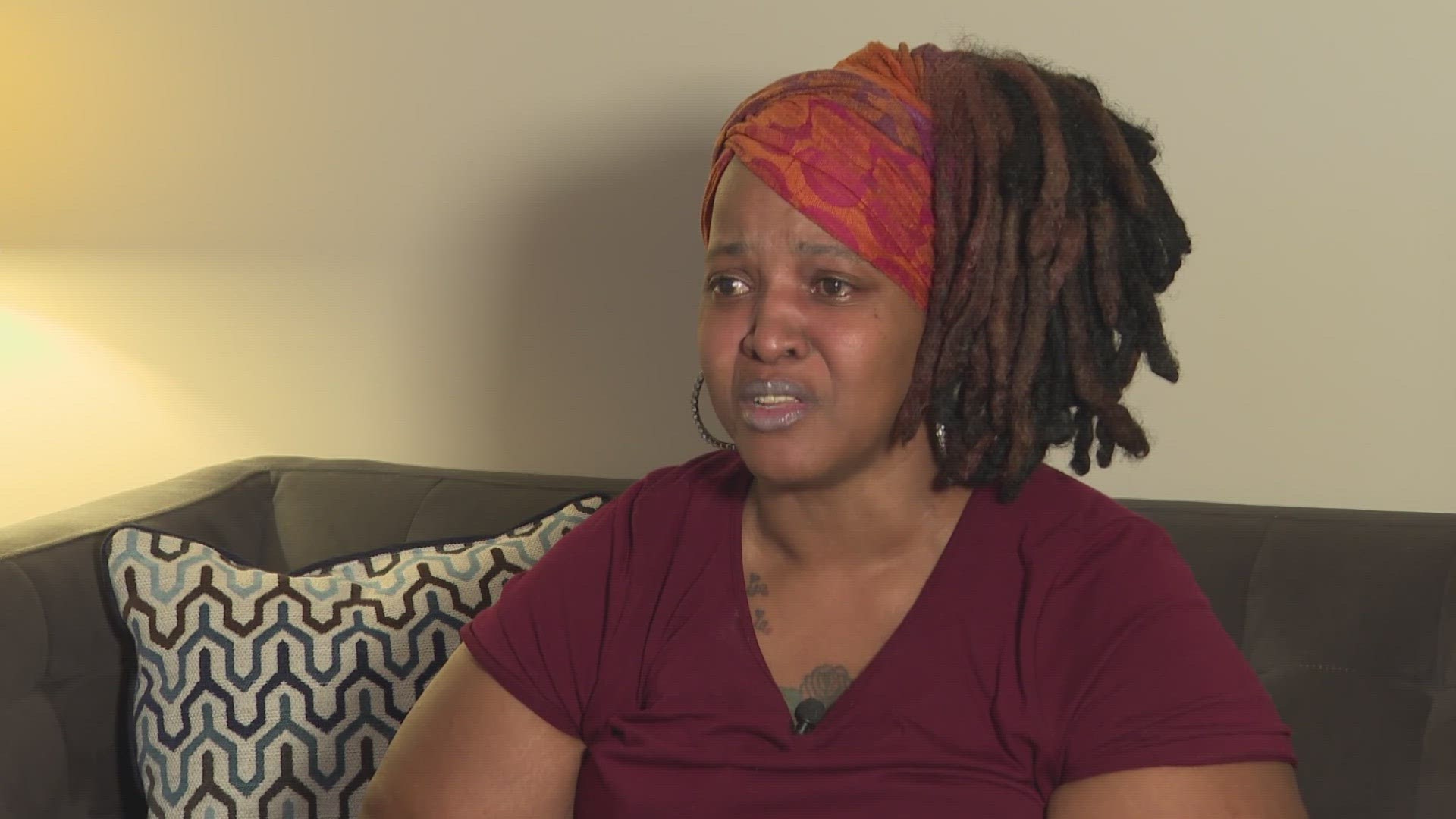JACKSONVILLE, Fla. — A Jacksonville mom is hoping for a Christmas miracle. She’s looking for affordable housing but can’t find it, and she’s not alone. Jamilya Henderson fights back tears as she talks about her current circumstances.
“It’s very draining,” Henderson said. “Every single day I'm trying to stay positive for my girls. But it's getting harder and harder and harder by the second.”
She and two of her teenage daughters are sleeping on a couch they share at a relative's home. She says they sleep in three-hour intervals.
“I wake them up, and I lay down. Then they wake me up to lay down,” Henderson said. Getting rest is difficult.
“Especially with them being in school and trying not to miss school. They go to school just to get a break from the situation, but they're going to school sleepy or sleep-deprived, so it’s bad.”
Most of their friends don't know the high school honor roll students are homeless.
“It’s not something that my girls want others to know about,” Henderson explained.
It's a situation Beth Mixson with the nonprofit Family Promise of Jacksonville says more than 3,000 Duval County students find themselves in according to the most recent numbers from the Florida Department of Education.
Some live in shelters, others in hotels, cars, on the street or with relatives.
“If you can imagine the Jacksonville Shrimp stadium, that if you filled it with all the homeless students and their parents and brothers and sisters, it would almost be at capacity,” Mixson said.
Families she describes as the hidden homeless.
“You don't see them very often on the streets. They know the streets are not safe for their children. They are parents,” Mixson said. “They want to take care of their children. So, they're doing things like couchsurfing.”
Her organization has a temporary shelter that helps families like Henderson's but right now it’s full.
“We have nearly 20 families on our waiting list. So that's really the challenge for families,” Mixson said. “We are getting calls daily or emails with families looking for housing, and particularly of late we've been getting a lot of large families with four or more children. That's a real challenge for them to find both shelter and also for housing.”
Henderson says gets about $900 a month in disability payments and is unable to work.
“What we live off of after I pay certain bills like the cell phone bill, insurance, storage fees, everything, we have about $200 to live off of,” Henderson explained.
She hasn't been able to find a permanent home since a yearlong rental assistance program that was helping her ended.
“As of October 31st we're homeless again,” Henderson said.
She's been on the waiting list for public housing, but according to the Jacksonville Housing Authority's website, it's a three to five year wait.
“They told me that I've got about two more years left on the waiting list. And that's if I get chosen,” Henderson said. “I've called the City of Jacksonville. But the thing is without already having a place to live in, they don't just hand out financial assistance for you to go get a place you have to have the place already. But I can't secure the place because I don't have the income. I don't have the income because my disability is only $914.”
Mixson says it’s a problem that extends past the First Coast, and short-term and long-term solutions are needed.
“There is not enough affordable housing in Jacksonville. There's not enough affordable housing in Florida. And there's not enough affordable housing in the United States,” Mixson said.
Henderson doesn't know where to turn.
“I'm hoping that somebody will see my story and just help, like however they can, just help us get a place.”
First Coast News reached out to the City of Jacksonville. Affordable Housing and Community Development Director Joshua Hicks said, “There are heartbreaking consequences to Jacksonville’s affordable housing crisis. That’s why the Deegan Administration is working with City Council on short-term programs that provide immediate relief while building more affordable housing units in the long-term.”
Mayor Deegan has proposed spending about $8 million to address homelessness and the lack of affordable housing. That proposal will have to be approved by the Jacksonville City Council. A final vote is expected by the December 12, 2023 meeting.

